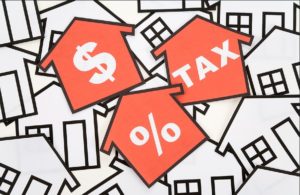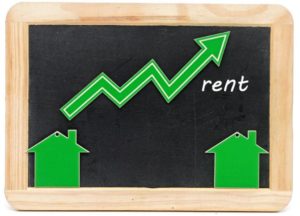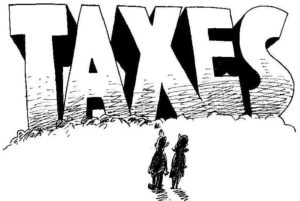Property Taxes And Your Rental Property
If you are a landlord, I can probably accurately say that when you bought your first rental property, you didn’t give a lot of thought to property taxes.
It can be quite shocking to get that first tax bill!
The government doesn’t care if you are a new landlord or an experienced one and they just send the tax bill to the owner of record. Property taxes are a source of income to your local government and you are expected to pay that bill in full. Taxes are not going away.
Homeowners Get A Break
Are you a homeowner? Lucky you! Most areas give tax breaks to you, as long as you live in the home.
Do you own rental property? Unfortunately, you won’t get a tax break. You will find that there are some areas that seem to hate landlords. If you are a landlord, you may be penalized by being charged higher property taxes.
You will find that there are some areas that seem to hate landlords and will penalize them. Click To Tweet
Property Taxes
Most landlords are so happy when they finally realize their dream of purchasing their first rental home. Very few of them think “How much are the property taxes going to be?” Property taxes can cause a lot of trouble for new landlords because it an unexpected cost that they haven’t counted on.
Yes, you have to worry about getting the property fixed up, getting a tenant in it and getting paid! But, property taxes and insurance are what I call “hidden costs” that catch a lot of landlords by surprise.
Unexpected Costs
I have found that these “unexpected costs” are one of the biggest problems facing many new landlords because they don’t allow for them. Owning rental property can be great, but you need to plan for the unexpected and annually increasing property taxes is one of those things. You never know if you will get a moderate tax increase or a large tax increase. If you don’t have a financial reserve, you could be in trouble.

The Bill Comes Every Year
Property taxes are something you will battle every single year on every one of your rental properties. There is nothing scarier than getting those tax bills in the mail. You will find that just the thought of opening those envelopes will cause a flood of dread and anxiety. If you own dozens of houses, it can be really scary! Property tax increases drive property owners crazy!
As a property owner, you can always count on the fact that every year, every property in your area will be assessed and taxed. Sometimes you will be lucky and your tax rate will go down. However, usually your tax rate will go up. Sometimes the increase is small and sometimes it will take a huge jump.
You can always appeal the new tax rate but there is no guarantee that you will be able to get it lowered. This means you will be stuck paying the newly increased tax rate.

Is Your Rent High Enough?
The question is, will the rent you are charging cover the increase in taxes? Do you have a reserve to cover this unexpected cost if you can’t raise the rent right now? If not, you may lose money on your rent this year instead of making money.
I know a lot of landlords that love to do two and three year leases. If you are able to get a longer lease, make sure that you allow for rent increases at the beginning of each year of the lease term.
Plan for a tax increase every single year and adjust your rents accordingly. Click To Tweet
Plan Ahead
The best way to protect yourself from taking a hit is to plan ahead. Plan for a tax increase every single year and adjust your rents accordingly. Build the tax increase into your rent and allow for future rent increases. A planned annual rent increase will allow you to stay ahead of tax increases instead of being caught off guard and behind.
Landlords that own rental property have to deal with property taxes because the are a part of life for anyone who owns property. Plan for an increase, make sure your lease allows for increases and try not to stress too much.
Is your property valued fairly? How do you know? Find out more here.

